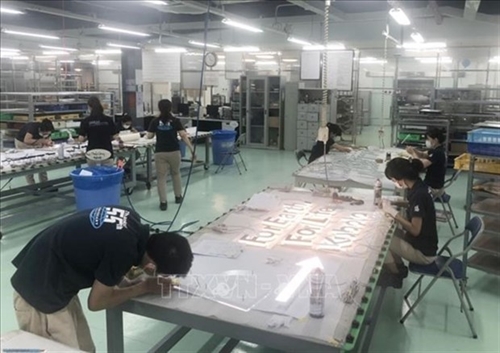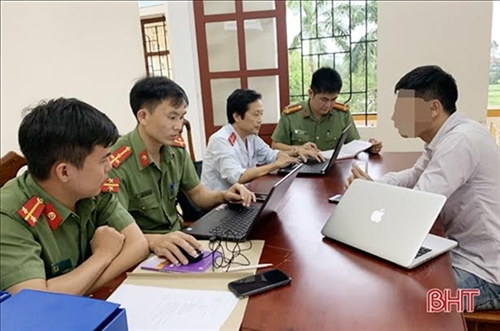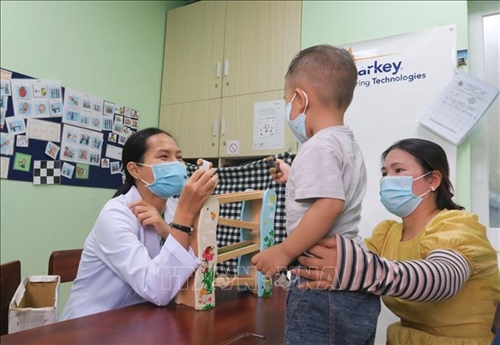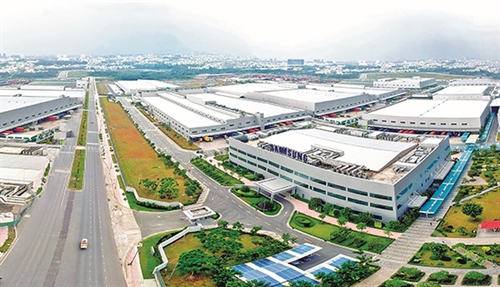The State Bank of Vietnam (SBV) is consulting on a draft circular for incentive policies to support firms with access to bank loans to overcome difficulties in the COVID-19 pandemic.
 |
| Firms are expecting new policies to help them access supporting loans more easily__Photo: VNA |
Enterprises are expecting the circular to help them gain access to more supporting loans.
The draft revises Circular 03/2021/TT-NHNN dated April 2, 2021, which regulates the restructuring of debt repayment terms, and exemption and reduction of interest rates and fees to support customers affected by the pandemic.
The revised circular has two main changes. First, the debt restructuring period will be extended to June 30, 2022, instead of the original plan of December 31, 2021. Secondly, the repayment terms will be restructured for customers in lockdown regions.
Most firms in Ho Chi Minh City, who have had to suspend production and business operations to prevent the pandemic, said they expected banks to freeze debts and reduce interest rates on existing debts.
At the same time, firms expect banks to deploy new loan packages with preferential interest rates and simple procedures to support businesses to overcome this difficult period.
According to Ly Kim Chi, Chairwoman of the HCM City Food and Foodstuff Association (FFA), due to too high costs in maintaining production and business, local firms are in dire need of priority to get bank loans to stabilize production and avoid risk of supply chain disruption.
As the pandemic affects all economic sectors, Chi suggested the SBV consider allowing debt rescheduling for all firms in the city so that they do not have to pay debts for at least the next six months.
However, Chi said the support policies needed to simplify the procedures and documents required to prove firms qualify for the incentives. The bottleneck was preventing many firms from being able to access support policies from banks.
The FFA also recommended the SBV add firms in specific industries such as food and foodstuffs to the list of beneficiaries of new loan policies with loan interest exemption and reduction and rapid disbursement to help supplement capital to stockpile raw materials and finished products for reserves.
Some firms also proposed the SBV consider restructuring debts arising after June 10, 2020 due to the prolonged COVID-19 pandemic. According to the provisions of Circular 03/2021/TT-NHNN, banks can only restructure debts arising before June 10, 2020, so debts disbursed after the time are at risk of being classified as bad debts if firms fail to handle them on time.
Real estate firms are also facing a cash flow disruption and the risk of losing liquidity. Therefore, HCM City Real Estate Association (HOREA) has also proposed that the SBV revise the draft circular.
HOREA proposed the SBV allow credit institutions, commercial banks and foreign bank branches to consider and decide on the rescheduling of debt repayment, exemption and reduction of interest and fees, and keeping debt classification unchanged as well as considering giving new loans to real estate firms.
It would provide more practical support for firms including those in real estate, who are affected by the COVID-19 pandemic, to reduce borrowing costs, input costs, and access new loans to have more time to gradually restore production and business.
In addition, as the average deposit interest rate remains significantly low, HOREA expects the SBV to ask commercial banks to consider reducing lending interest rates by 2 percent per year for borrowers to make the lending rate reasonable and ensure the harmonization of interest for borrowers and lenders.- (VNA/VLLF)









